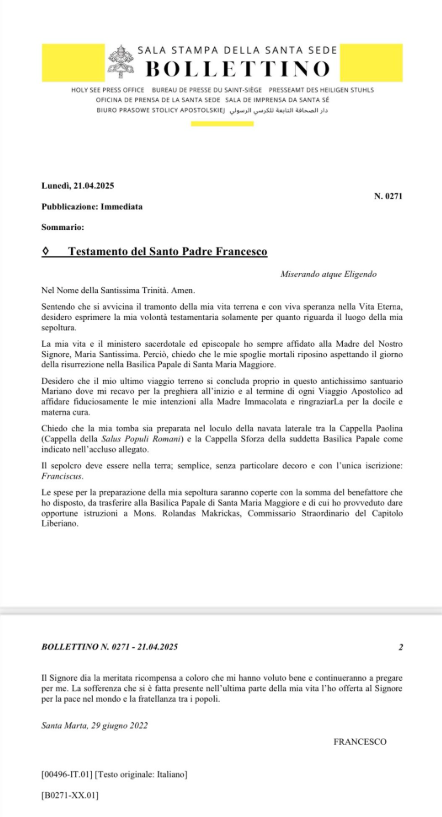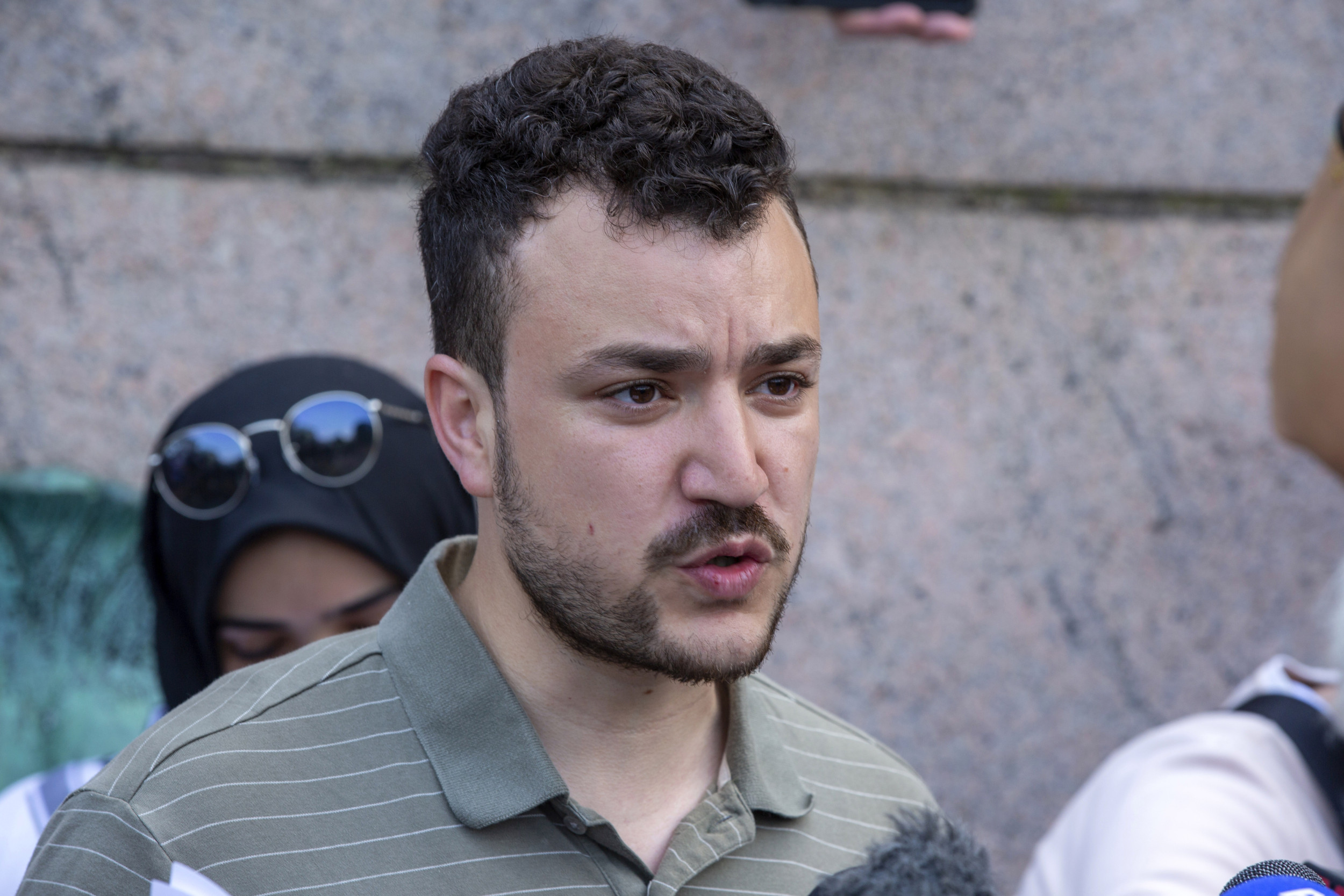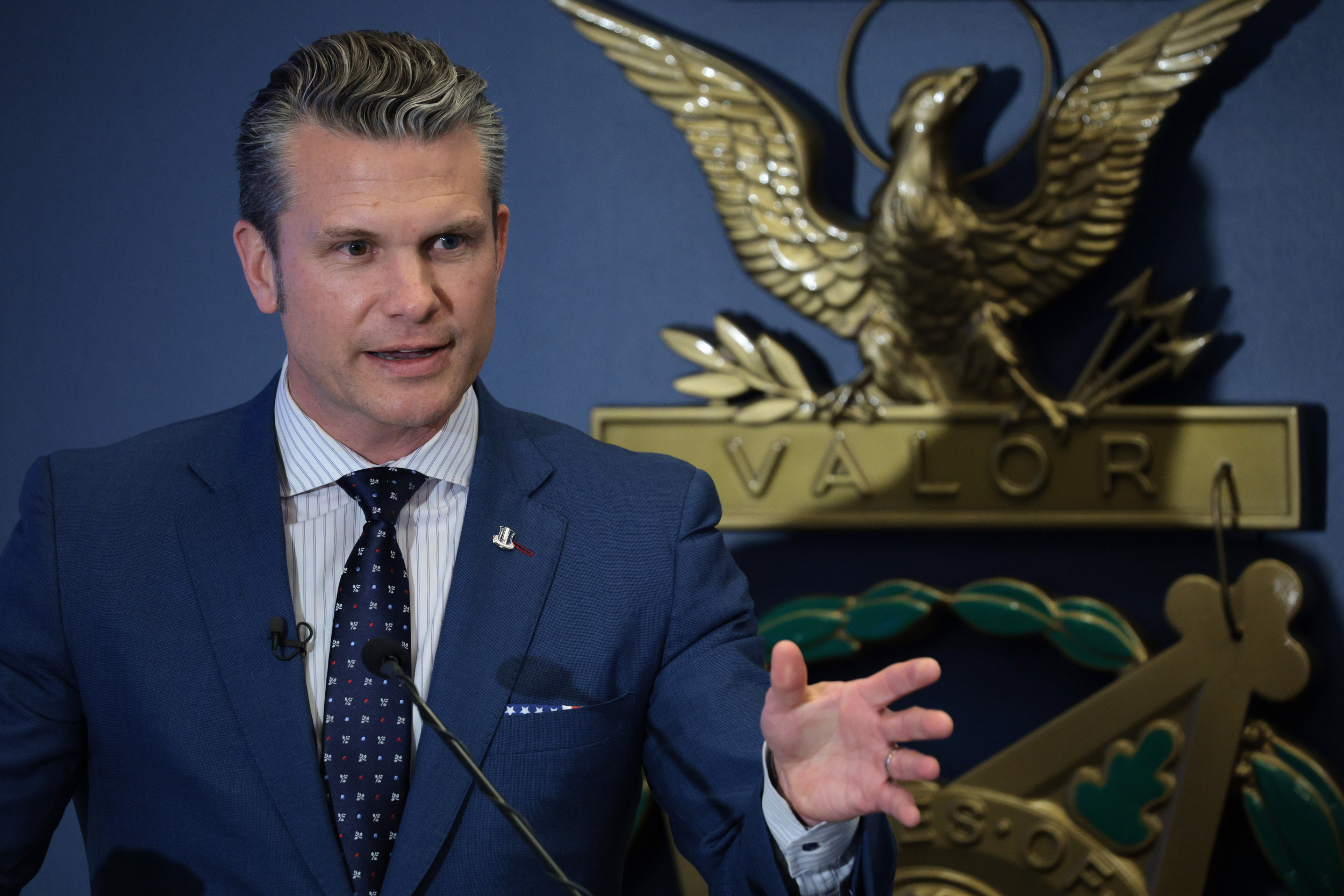🎙️ Voice is AI-generated. Inconsistencies may occur.
As representatives of the United States and Iran prepare to officially explore the possibility of reviving nuclear diplomacy on Saturday, President Donald Trump stands on the precipice of a major step toward his stated vision of peace in the Middle East.
Such an achievement would offer the president a long-awaited win in proving his case for a new style of U.S. leadership in a region that has otherwise trended toward growing instability.
But the road to a new Iran deal, as was the case with the ill-fated attempt to strike an agreement with North Korea during his first term, is laden with pitfalls. U.S. and Iranian officials have not even publicly agreed to the format of the talks set to take place this weekend in Oman, much less their scope.
Analysts and former officials say both sides will have to carefully calibrate their expectations in order to achieve a peaceful outcome and avoid a serious escalation that could even lead to war.

Setting the Record Straight
Richard Nephew, former U.S. State Department official and now senior research scholar at the Columbia University's Center on Global Energy Policy, argued that Trump's strategy currently appeared to be caught between "two diametrically opposed visions"—White House national security adviser Mike Waltz's call for the dismantling of Iran's nuclear program in its entirety and Middle East Special Envoy Steve Witkoff's talk of implementing stricter transparency and limits on Iran's nuclear activities.
Only the latter course, he said, was likely to be met with meaningful engagement from Tehran, which has always insisted its nuclear facilities were solely for peaceful purposes.
"Iran will not accept elimination," Nephew, who served as lead global sanctions coordinator during the negotiations that led to the last major nuclear agreement, the 2015 Joint Comprehensive Plan of Action (JCPOA), under then-President Barack Obama and later as anti-corruption chief under former President Joe Biden, told Newsweek.
"If they are only interested in a deal that eliminates Iran's nuclear program, then they're not serious. It is not a thing Iran will agree to diplomatically," Nephew said. "They may be able to eventually force Iran to accept such terms after the use of military force, but even then, my strong view is that would only come after regime change."
On the other hand, he said Iranian leadership "would accept a limited deal with transparency improvements."
Witkoff, a longtime friend of Trump who shares his background as a billionaire New York real estate mogul, has further earned the president's trust in his breakthrough of a ceasefire deal between Israel and the Palestinian Hamas movement in January. Last month, he was deployed to Moscow to meet with President Vladimir Putin in talks on ending the war in Ukraine.
With the envoy now set to reportedly lead the U.S. delegation meeting Iranian Foreign Minister Abbas Araghchi and his team in Oman on Saturday, Nephew said that, "if, as Witkoff has indicated, [the Trump administration's] demands are less total, then they may be able to find a way to obtain greater transparency into Iran's nuclear program, perhaps even a small amount of rollback (e.g., limits on Iranian centrifuge or enriched uranium stocks)."
But this approach "is unlikely to satisfy the U.S. team in full or certainly the Israelis, who retain the ability to attack Iran themselves," Nephew said. "The real question is whether Trump is prepared to side with the group looking at a realistic deal."
Newsweek has reached out to the Iranian Mission to the United Nations for comment.
Contacted for comment, National Security Council spokesperson James Hewitt denied any rifts between the two men tasked with executing Trump's policy on Iran.
"NSA Waltz and Special Envoy Witkoff are in constant communication to ensure the President's policy of dismantling Iran's ability to develop nuclear weapons capabilities is carried out," Hewitt told Newsweek. "Any 'analysts' who suggest otherwise have no clue what they're talking about."
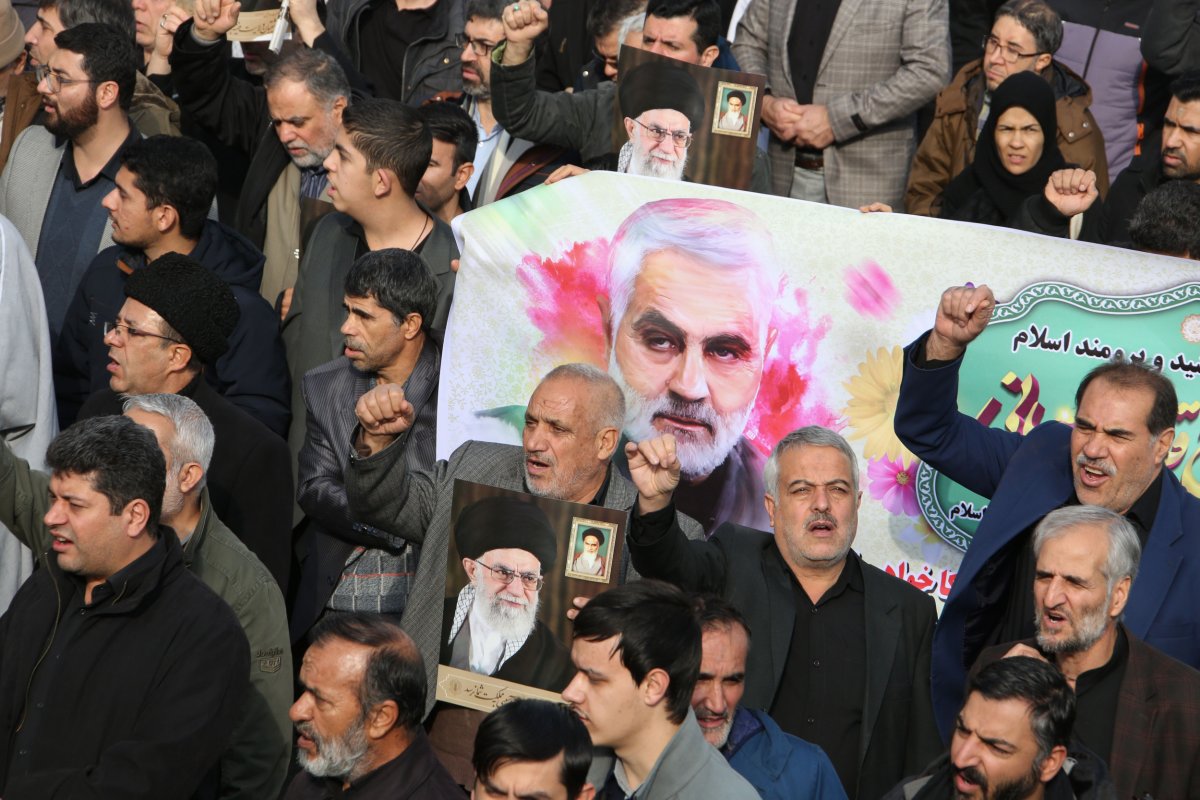
From Pyongyang to Tehran
Trump's efforts are further complicated by the rampant mistrust that exists between the U.S. and Iran, two longtime foes whose most significant diplomatic breakthrough was scrapped by Trump in 2018. Two years after abandoning the hard-won JCPOA, Trump's order to kill Major General Qassem Soleimani, the commander of Iran's elite Quds Force, in 2020 made the U.S. president public enemy number for the Islamic Republic.
After the Biden administration's failed attempt to restore U.S. participation in the JCPOA, Trump in his second term has offered to pursue a new "verifiable nuclear peace agreement" with Iran. At the same time, he has repeatedly warned that military action was on the table if a deal could not be reached.
The bad blood has prompted Iranian officials to question the degree to which Trump is truly committed to seeing a deal through. And while it would not be the first time Trump has swapped his saber for an olive branch, past setbacks haunt the quest for a successful deal.
"All of this will require sanctions relief and acceptance of Iran having a nuclear program to start," Nephew said. "That remains unclear, and it is worth noting that this is exactly what happened with North Korea."
Just around the same time that Trump withdrew the U.S. from the JCPOA, he also pressed ahead on a separate agreement entailing peace for denuclearization and sanctions relief with North Korea. The move marked a major shift from soaring tensions between Washington and Pyongyang that saw Trump and North Korean Supreme Leader Kim Jong Un resorting to insults and nuclear-fueled threats toward the end of 2017.
Trump would go on to become the only sitting U.S. president to meet with a North Korean ruler in June 2018 in a high-profile summit intended to outline the framework for a deal. In the months that followed, however, working-level talks had begun stalled, and their second summit in February 2019 ended abruptly without a deal. Tensions ultimately returned to the Korean Peninsula.
Then, too, there appeared to be dissonance within Trump's own corner, as figures such as then-national security adviser John Bolton adopted markedly less compromising rhetoric during the negotiations. After firing Bolton months later, Trump would go on to blame his former national security chief for sabotaging the negotiations by referring to a "Libyan model" for Pyongyang's denuclearization.
Back in 2003, just months after the U.S. invaded Iraq, toppling President Saddam Hussein on the pretext of supposed weapons of mass destruction that never materialized, Libyan leader Muammar el-Qaddafi agreed to shutter his nation's burgeoning nuclear program in exchange for peace with Washington. Qaddafi was later ousted and brutally slain by a NATO-backed rebellion in 2011, serving as a cautionary tale for those considering surrendering their nuclear programs.
"We were set back very badly when John Bolton talked about the Libyan model," Trump said during a September 2019 news conference at the White House. "And he made a mistake. And as soon as he mentioned that, the 'Libyan model,' what a disaster. Take a look at what happened to Qaddafi, with the Libyan model. And he's using that to make a deal with North Korea?"
During a June 2020 interview with Fox News, Trump later called Bolton's comments in the midst of the North Korea talks "one of the dumbest things I've ever seen on television, frankly."

Israel at Arms
Now, as Trump looks to court another supreme leader, Ayatollah Ali Khamenei, with nuclear negotiations, it's Israeli Prime Minister Benjamin Netanyahu who is drawing parallels to Libya. The Israeli premier called Monday for Iran's denuclearization "the way it was done in Libya" during a joint news conference with Trump after talks in which many analysts saw new rifts emerge between the two allies.
Though often portrayed as a staunch admirer of Netanyahu, Trump has also demonstrated on several key occasions a willingness to push back against the Israeli premier amid his war with Hamas, which sparked the current conflict in a shocking October 2023 attack.
Tehran and its Axis of Resistance coalition joined in the fight, bringing Iran and Israel into direct open conflict for the first time and accelerating Netanyahu's calls for joint action with the U.S. against the Islamic Republic. But even as Trump issued his own warnings to Iran, he has downplayed his enthusiasm for towing the Israeli line on pursuing such a joint strike as "greatly exaggerated."
Nimrod Novik, an Israel Policy Forum fellow who served as senior foreign policy adviser to former Israeli Prime Minister Shimon Peres, argued that, after the Israeli leader's latest visit, "the experienced Netanyahu must have no illusions about his leverage—or, more accurately, lack thereof—when it comes to standing up to Trump on issues the president deems important."
"Thus far, Trump proves to be neither Obama nor Biden in tolerating his defiance," Novik told Newsweek. "Four times in as many months, when Washington did not see eye to eye with him, Netanyahu was forced to blink, or at least to hold his peace. First, even before assuming office, Trump forced him to accept a Gaza deal he had rejected for months. Shortly thereafter, when Netanyahu blocked progress on that deal, he was stunned by Trump authorizing a direct contact with Hamas."
"More recently, Netanyahu's predictable rejection of the Arab League Gaza plan did not stop Washington from declaring it 'a good-faith first move' worthy of further discussion, and now Iran..." Novik said. "The message from all four instances is that those who share the conventional wisdom whereby Trump is in Netanyahu's pocket need take a second look."
Novik said that Netanyahu, often referred to by his nickname, "Bibi," was looking to signal strength and influence back home, where he also faces legal troubles and mounting protests, only for a growing chorus of observers in Israel to urge him not to overplay his hand with Trump.
"Consequently, in setting the high—indeed, unrealistic—bar of 'like Libya,' Bibi was spinning his strategic setback for domestic consumption," Novik said. "Having invested in persuading Israelis of his unique relations with Trump, and with the president's popularity among Israelis far exceeding that of Netanyahu's, portraying Trump's move as hostile to Israel—the way he did with Obama—would ring hollow, and standing up to him would neither enjoy domestic support nor yield political dividend."
"It is no accident that most analysts back home call upon Netanyahu to learn from his previous mistake: you can't stop Trump from trying," he said. "You'd better make sure to have his ear in seeking to improve the terms of a negotiated deal and his goodwill should negotiations fail and more drastic measures need to be taken to block Iran from going nuclear."
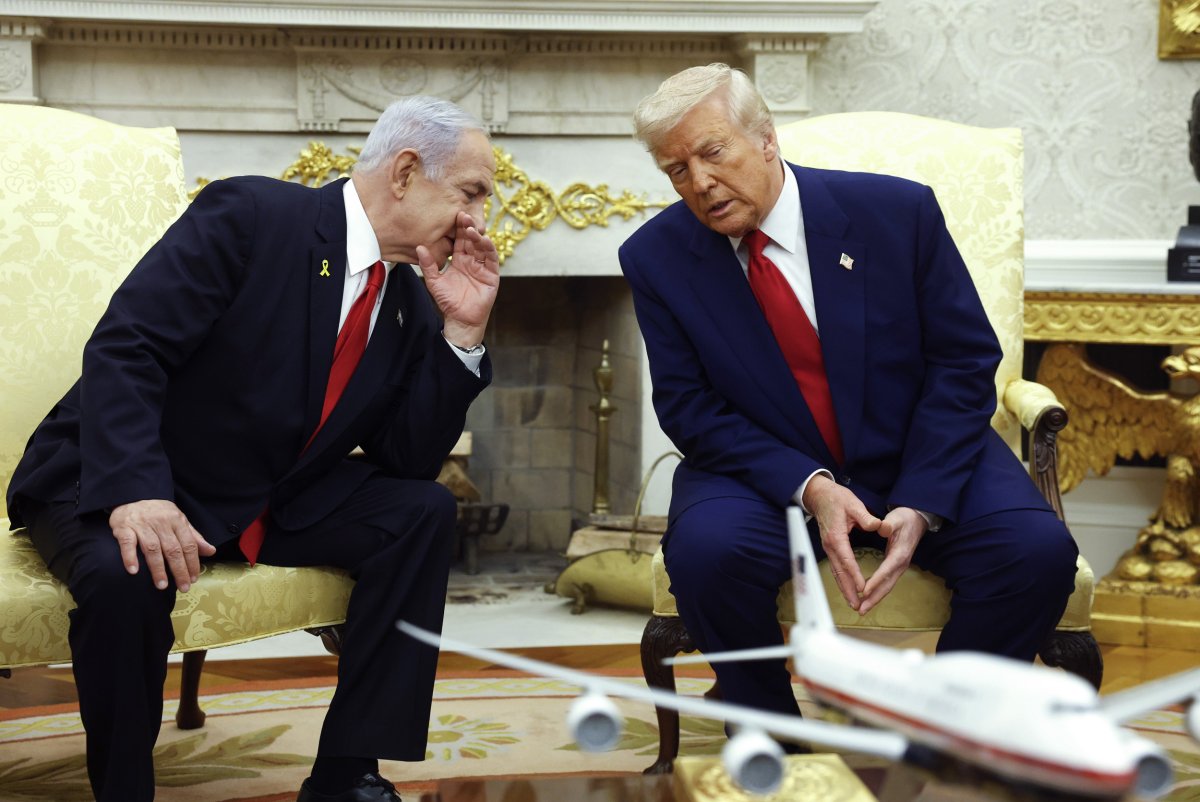
Buying Trust
While the fallout of Netanyahu's trip may have signaled a triumph for Trump's more diplomatic tendencies, overcoming Iran's deep-rooted suspicions of the U.S. leader's intentions is another task altogether.
Amir Hossein Vazirian, a Tehran-based analyst, said that the experiences of Iraq, Libya as well as Ukraine, which ceded Soviet nuclear weapons to Russia following independence in the 1990s only to face invasion three decades later, still loom heavy in Iran's decision-making.
With this in mind, he argued, any discussion of "the Libyan model and the Iraqi model," or any other effort to dismantle Iran's nuclear program in its entirety, much less its vast missile arsenal, amounted to nothing more than "imaginary talk." Otherwise, he said, talks specifically about instituting limits on Iran's nuclear program "will be accessible" for both sides.
"Iran, several times, announced that it doesn't have any problem with controls on its nuclear program," Vazirian told Newsweek. "Iran is seeking a kind of trust building with United States in the nuclear case."
"But if the United States wants in this negotiation to remove Iran's nuclear program, Iran will not accept," he added, "first of all, because of national pride, and the second factor goes back to the Libyan and Ukrainian experience in disarmament of nuclear facilities."
Still, Vazirian saw some positive signals amid the mixed messages being sent from Washington at a time when Tehran's appetite for diplomacy may be heightened by blows suffered to its Axis of Resistance, particularly the overthrow of Syrian President Bashar al-Assad in December.
"Iran needs a deal, and even before Assad's fall in Syria, Iran's ambassador to the U.N., Amir Saeid Iravani, and Elon Musk met each other in New York," Vazirian said. "This is the best, most important signal by Iran to the United States and Trump administration. And after that, many Iranian officials like Foreign Minister Abbas Araghchi, President Masoud Pezeshkian and recently Ali Larijani, the most important political advisor of Ayatollah Khomeini, talk about the United States interest in Iran and in the Middle East."
"Even today, Pezeshkian talks about an agreement and the point that Iran is looking forward to United States investment in Iran and that Iran's supreme leader agrees with this method," he added. "This is a new and strong signal by Iran to the Trump administration."
At the same time, he argued that "Trump also needs an agreement with Iran" to fulfill one of his key campaign promises.
Seyed Hossein Mousavian, a former Iranian diplomat who served on Iran's nuclear negotiations team in the mid-2000s and now a specialist at Princeton University's Program on Science and Global Security, echoed the prospects of an investment deal cutting through the dense air of distrust between Tehran and Washington.
"The distrust is mutual, and both sides need to work to overcome it," Mousavian told Newsweek. "However, what could truly transform Iran–U.S. relations is a multi-trillion-dollar economic agreement that could sweep away the problems between them like a massive flood."
Despite being hit by crippling sanctions, Iran remains one of the largest economies in the Middle East. The Islamic Republic may not appear at first glance as a potential hub for U.S. investment, but in his businesslike approach to diplomacy, Trump has consistently spoke of Iran's potential over the years.
Still, if mutual prosperity is sought by the Trump administration, Mousavian warned Iran would prove resistant to the old tactics of "maximum pressure" that failed to sway Tehran in past attempts at diplomacy, even if "Iran's regional allies have suffered significant setbacks" throughout their current conflict with Israel.
"Trump wants a deal and is not inclined toward war," Mousavian said. "But he has taken the wrong approach. A train can never run on two tracks at the same time. The simultaneous policy of diplomacy and sanctions is the same dual containment policy introduced by [then-U.S. Ambassador to Israel] Martin Indyk during the Bill Clinton era in 1993."
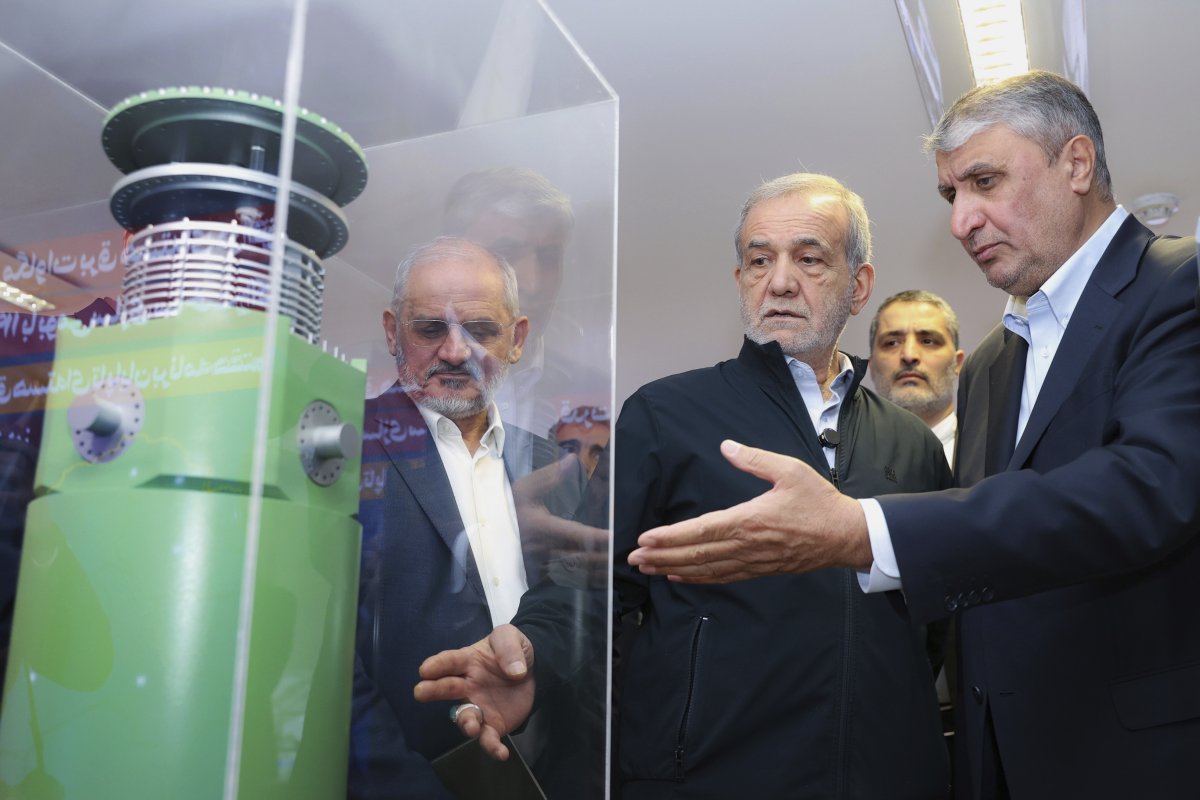
Risk Management
While Tehran and Washington have both voiced their preference to avoid open conflict, the threat of a runaway escalation, deliberate or inadvertent, remains real.
Rahman Ghahremanpour, a freelance researcher and writer specializing in Iran's nuclear diplomacy, argued that there is "a growing consensus in the U.S. that coercive diplomacy is the most effective framework to deal with Iran," yet such an approach "can also be a threat."
"The success of this type of diplomacy lies in creating a balance between diplomacy and force," Ghahremanpour told Newsweek. "However, it is difficult to determine this balance point, which is why some analysts are talking about the possibility of a military confrontation between Iran and the United States."
"That is, if Trump cannot use this coercive diplomacy correctly, it could lead to war," he added, "and this is something that Trump does not want, and of course, Iran does not like at all."
And while Ghahremanpour argued that "Iran has taken Trump's threats seriously," he also outlined divisions within Tehran, where hard-liners already skeptical of the JCPOA now "oppose any kind of negotiation" toward a new deal that would have to be endorsed by Khamenei. Some have even advocated for reconsidering the supreme leader's longstanding ban on nuclear weapons production.
"Therefore," Ghahremanpour said, "Iran is trying to strike a balance between Trump's threats and domestic challenges."
The upcoming talks in Oman, long known as the "Switzerland of the Middle East" for its neutrality amid regional conflicts, could serve to provide some clarity to both parties.
Kelsey Davenport, director for nonproliferation policy at the Arms Control Association, told Newsweek that the meeting "provides a critical opportunity for Trump to articulate pragmatic objectives for an agreement and distance himself from needlessly provocative references to complete dismantlement."
Given that "Witkoff appears to share Trump's view that a deal should focus on limits and monitoring," she argued that sending the envoy "and exercising some message discipline would be a step in the right direction."
"Trump needs to demonstrate that he is negotiating in good faith and create an environment conducive to talks," Davenport said. "Minimizing references to military strikes and pausing further sanctions could go a long way toward demonstrating to Iran that the United States is serious about reaching a mutually beneficial agreement. Iran knows the United States can ratchet up sanctions quickly. The Trump administration has to show it can also ease up on pressure."
"Trump should use the Oman talks as an opportunity to lay out a vision for the end-state of Iran's nuclear program under a deal," she added. "This could include making clear that the United States will respect Iran's rights under the Nuclear Nonproliferation Treaty if Tehran moves back from the threshold of nuclear weapons and accepts intrusive monitoring."
fairness meter
About the writer
Based in his hometown of Staten Island, New York City, Tom O'Connor is an award-winning Senior Writer of Foreign Policy ... Read more

